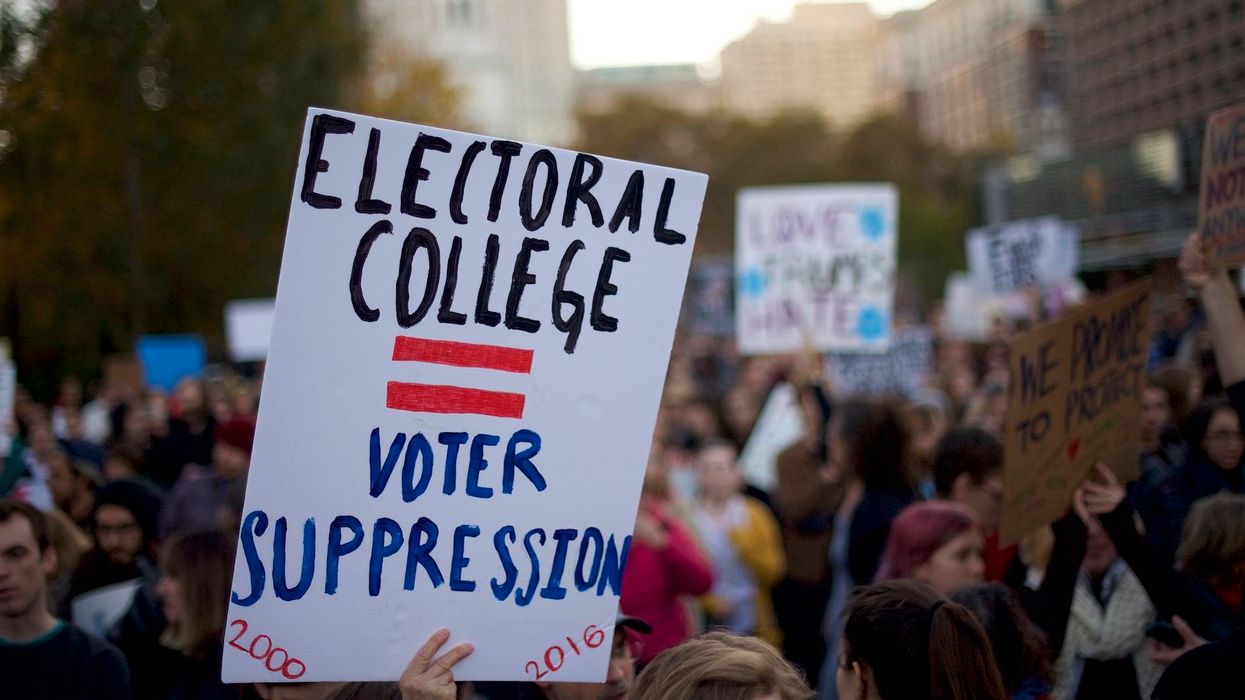
Photo by Mark Makela/Getty Images

They don't grasp US civics
Democrats have been loudly clamoring for an end to the Electoral College for the last two decades.
Their demands began in earnest when Republican George W. Bush defeated Democrat Al Gore in the 2000 election. That was the first time since 1888 that the winner of the Electoral College lost the popular vote.
Since then, the cries to abolish the Electoral College have grown only more shrill — especially following President Donald Trump's win in 2016 over Hillary Clinton, despite losing the popular vote.
For example, just this week, CNN's Don Lemon was caught saying we need to "blow up the entire system" should the Senate confirm Trump's forthcoming nomination to the Supreme Court to fill the vacancy left by the death of Justice Ruth Bader Ginsburg.
A key step in blowing up the system, Lemon said, was "to get rid of the Electoral College ... because the minority in this country decides who the judges are and they decide who the president is. Is that — is that fair?"
Today's attacks on the system established by the Founding Fathers are not new or unique. But are they working?
According to a poll published by Gallup on Thursday, they seem to be.
Gallup asked voters if they would prefer to amend the Constitution and select the president by popular vote or keep the current Electoral College, 61% of Americans said they would prefer electing the president via popular vote. Just 38% want to keep the current system.
A vast majority of Democrats (89%) and a strong majority of independents (68%) backed the popular vote, while just 23% of Republicans felt the same.
Though the current support for the popular vote is not an all-time high for the Gallup poll — 62% of Americans in 2011 held that view — it is reflective of the growing movement to jettison the Electoral College since President Trump's victory four years ago. In 2016, 49% of voters wanted to move to the popular vote, while 47% supported the system we have today. In 2019, those numbers jumped to 55% and 43%, respectively.
Broken down by party, the GOP has consistently been less supportive of the popular vote than Democrats.
In 2000, 42% of Republicans supported moving to the popular vote, and 74% of Democrats said the same.
By 2011, the share of Republicans feeling that way had jumped 11 points to 53%, while Democrats had dropped 3 points to 71%.
In 2016, GOP support for the popular vote plummeted to 17%, while Democrats increased to 81%.